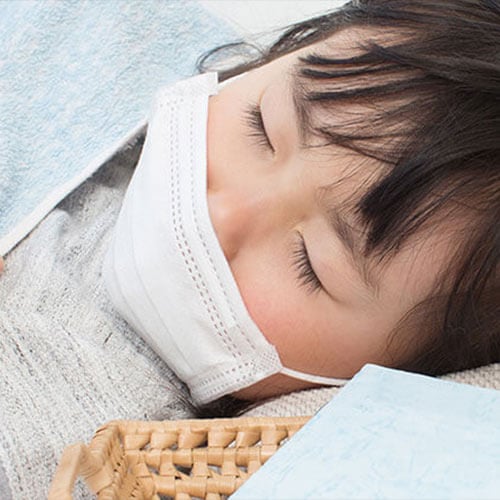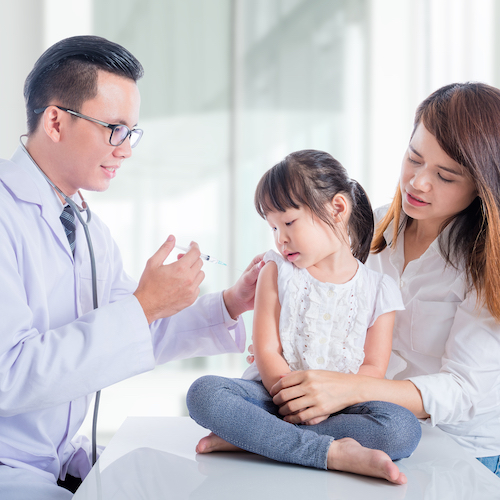As parents, your heart can break a little when you see that your kid is sick. But this pain can be amplified when your kid tests positive for COVID-19, a sad reality brought about by this pandemic.
Given how transmissible this disease is, it can be challenging to navigate this ordeal, especially if you’re dealing with young kids who aren’t able to fully grasp the situation yet.
However, if that test result turns out positive, don’t panic. While taking care of a sick child can be difficult, it is definitely doable. Remember these tips so your kid can be quickly on his or her way to recovery.
1. Seek medical attention and isolate the sick child.
When your child manifests any symptoms it is best to consult your doctor for proper guidance. Your doctor or pediatrician can guide you with specific steps to follow and plan appropriate management of your child depending on the severity of symptoms.
Take note that COVID-19 symptoms among kids can be mild and may be likened to that of a common cold. However, don’t hesitate to seek medical help if they exhibit:
- Breathing difficulties
- Chest pain
- Dizziness
- Bad stomach pain
- Cold, sweaty, and pale skin
If possible, ensure that the child has a separate bedroom and bathroom. If there are shared rooms, make the necessary arrangements or adjustments to minimize unnecessary contact with the child. Lastly, assign one person who’ll be in charge of taking care of the sick kid. You can isolate your child at home with mild to moderate symptoms for 10 days. Recovery period is estimated at one or two weeks. It is important to update your pediatrician on the symptoms of the child. Sometimes, he/she might need hospital care specially when the fever is persistently high, with note of shortness of breath or breathing difficulties, and/or is immunocompromised with comorbidities. The recommended isolation period for severe cases is 21 days.
2. Separate the sick child’s items and refrain from sharing them with others.
Don’t forget to separate the sick child’s personal items like drinking glasses or bottles, eating utensils, plates, bowls, towels, clothes, or even toys. These items should be thoroughly cleaned with soap and water after each use.
3. Wear a mask when interacting with the child.
Especially when sharing a space with a sick child, make sure both of you are wearing appropriate masks. Face masks specially made for kids can come in handy. Just like with adult face masks, ensure that the mask fits snugly over their nose and mouth and under the chin, without any gaps.
4. Monitor their symptoms, body temperatures, and oxygen levels.
Pay close attention to their symptoms. Take temperature and oxygen level readings constantly, and record them. If possible, explain to your child what’s happening as well. Don’t forget to update your pediatrician.
You can talk to a doctor to know about potential medicines that may help relieve symptoms like headaches, fever, cough, cold, and/or body pain. Acetaminophen or ibuprofen specially formulated for kids may be prescribed to alleviate symptoms and make the child more comfortable.
5. Ensure they eat the right food and get adequate rest.
Help them recover quickly by giving them lots of fruits and vegetables loaded with immune-boosting nutrients like:
- Vitamin A: Found in carrots, sweet potatoes, pumpkins, and leafy greens
- Vitamin C: Found in citrus fruits like oranges, kiwis, berries, tomatoes, red bell peppers, and leafy greens
- Vitamin D: Found in salmon, tuna, sardines, and vitamin D-fortified food
- Vitamin E: Found in almonds, sunflower seeds, and peanut butter.
- Zinc: Found in lean meats and poultry, chickpeas
If as a parent you feel that your kid’s not getting enough vitamins and minerals, you can also give them a supplement like vitamin C once a day, or as directed by your doctor.
On top of this, encourage your child to drink lots of water and give them some soup with their meals. Lastly, make sure your child sleeps well and gets good-quality rest so his or her body can recharge and recover fully.
The saying “prevention is better than cure” is more relevant than ever during these times. It’s always better to be prepared for any potential outcome in your home, even if it unfortunately includes having a child test positive for COVID-19.
References:
https://www.cnnphilippines.com/news/2022/1/7/COVID-19-home-isolation-quarantine-protocols.html
https://www.hopkinsallchildrens.org/ACH-News/General-News/5-Steps-for-if-Your-Child-Has-COVID-19
https://www.cdc.gov/coronavirus/2019-ncov/prevent-getting-sick/about-face-coverings.html
https://kidshealth.org/Nemours/en/parents/coronavirus-child-is-sick.html








